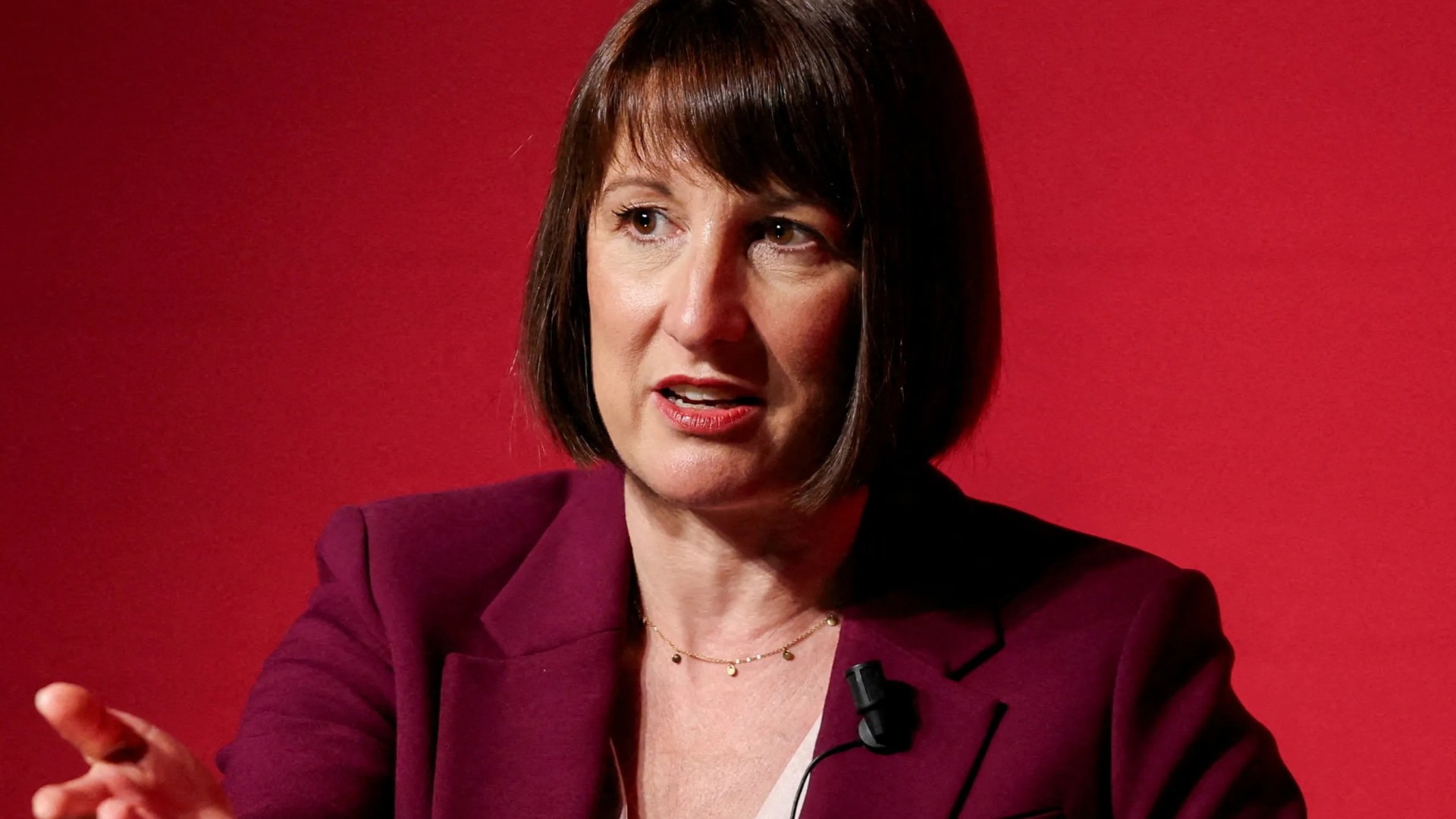Money
How should financial education be delivered to young children?


It has been 10 years since financial education was introduced to the national curriculum for secondary schools in England.
At primary school level, the national curriculum provides a framework for young children to recognise coins and learn how to use money through simple ‘number problems’ in maths lessons.
The ‘real life’ context comes later, during citizenship or ‘personal, social, health and economic’ education from age 11.
However, some schools do not follow the national curriculum, adding weight to the criticism that financial education is inconsistent in England.
Children need to be taught that Amazon doesn’t just turn up on the doorstep with toys
Earlier this year, a report by the House of Commons Education Committee found widespread evidence that financial education in England’s primary schools was “insufficient and should be expanded”.
So, how should financial education be presented to younger children and what role do financial advisers have in this?
Never too early
While not perfect, financial education has a bigger presence in other parts of the UK.
In Scotland, for example, it is part of the maths curriculum from age three and is taught within social studies as part of learning about business and enterprise.
In Northern Ireland, where financial education is a statutory requirement from age four, the value of money, saving and budgeting are covered in the later primary school years.
This can be achieved by better collaboration between policymakers, financial services providers and charities
Commentators point to research from Cambridge University in 2013 — which showed that financial habits tend to be formed by the age of seven — to underline the importance of financial education at an early age.
Some recall personal experiences with their own children that highlighted the need for early financial education, particularly in an increasingly digital and cashless society where spending has become so easy and scammers are at large.
About four years ago, MKC Wealth chief executive Dominic Rose was astounded when one of his children inadvertently ordered a toy from Amazon while playing with an iPad.
“My three-year-old had no concept of money being spent and no understanding that money had to be earned,” he says.
“Children need to be taught that Amazon doesn’t just turn up on the doorstep bringing toys.”
One of the ways MKC Wealth is helping with that is through a series of children’s picture books featuring the character of Eddie Teddie. The books aim to provide young children with ‘gentle’ financial education as they follow Eddie Teddie’s tale of earning extra pocket money to save up for a scooter.
We are teaching young children about coins, but less than 20% of transactions are in cash
Eddie Teddie was created by Face-to-Face Finance in 2019 and MKC Wealth ‘adopted’ him when it acquired Face-to-Face Finance last year. There are currently three books in the series, with a fourth in the pipeline.
“We picked up the mantle and gave the Eddie Teddie books to our clients to give to their children,” says Rose. “We are also selling copies through Amazon, with all proceeds going to a financial education charity.”
Primary schools — and even nurseries — are ideally placed to support parents in providing financial education at home by suggesting fun activities and signposting to useful information online.
“There are so many ways [to approach financial education] as all children learn differently,” says Rowan Harding, a financial adviser at Path Financial.
“Sometimes it can be very practical, to give children a feel for money rather than using electronic money.”
Teachers tell me the curriculum is so full they don’t have the room for financial education. They would need to take something else off
Giving children pocket money on the condition they spend half and save half, taking them into a bank or building society so they experience paying money into an account, playing ‘shops’ or even setting up a pretend bank are just a few of Harding’s suggestions for very young children.
“There are lots of ways to make financial education enjoyable,” she says.
A structured approach
A recent report by financial services trade association UK Finance highlights a range of projects in which financial services firms are involved to improve access to financial education.
In 2023, UK Finance members provided financial education to 4.1 million children. However, the trade body acknowledges that “a significant amount of work” remains and it would like to see the creation of a structured financial education curriculum roadmap.
In the short term, we believe the best way to deliver financial education in schools is to have approved external delivery organisations
“This should begin in early childhood and extend through the teenage years, to provide a steady and evolving understanding of financial matters as children progress through their educational journey,” says UK Finance head of vulnerability, financial inclusion and capability Fiona Turner.
“The financial services industry has been proactive in voluntarily providing financial education resources for primary, secondary and special educational needs schools, and has received overwhelmingly positive feedback on the impact this has had on students’ understanding and confidence in managing money.”
However, the organisation estimates it has reached only 40% of school children.
“This is why we are calling on the government to fully integrate financial education into the national curriculum by making delivery of financial education lessons mandatory for all schools and monitored by Ofsted,” adds Turner.
Some believe it is important for financial education to include the behavioural aspects of making sound financial decisions.
This should begin in early childhood and extend through the teenage years, to provide a steady and evolving understanding of financial matters
“This goes beyond traditional subjects like maths; it’s about understanding the psychology of spending, saving and investing,” says Quilter chief executive Steven Levin.
“We urge the Labour government to recognise the critical role of financial education and integrate it into our educational system, including at earlier primary school ages when behaviour is often embedded in children.”
Levin believes that this will ensure financial literacy “becomes a common standard, not a privilege”.
Long-term impact
Those who work in financial services are passionate about financial education because they understand the difference it can make. MKC Wealth advisers, for example, volunteer at a debt-advice centre and regularly see the consequences of poor financial literacy.
It goes beyond traditional subjects like maths; it’s about understanding the psychology of spending, saving and investing
Research commissioned by GoHenry — the pre-paid debit card and financial education app aimed at children and teenagers — found that UK adults who had not received financial education as children were more likely to be unemployed or earning less compared to those who had.
GoHenry founder and chief executive Louise Hill says: “In the short term, we believe the best way to deliver financial education in schools is to have approved external delivery organisations, with specialist teachers and bespoke resources going in to teach financial education for a set number of hours or days each term.”
In the long term, adds Hill, teachers must be given adequate time and resources so they can teach the subject themselves. They do not have these now.
There are so many ways [to approach financial education] as all children learn differently
Five Wealth director Steve Hughes says: “Teachers tell me the curriculum is so full they don’t have the room for financial education. They would need to take something else off.”
This would, of course, require government approval.
As a Personal Finance Society education champion, Hughes provides financial education sessions in schools and runs his own sessions on financial services careers. He describes financial education provision in England’s schools as “an embarrassment”.
“We are teaching young children about coins, but less than 20% of transactions are in cash,” he says.
“It’s anachronistic and needs updating to be reflective of how young people see money today.”
Some people may question the effectiveness of financial education given that little research has been conducted on the impact and benefits.
We gave the Eddie Teddie books to our clients to give to their children
“But the reality is that it’s not going to have a negative impact,” says St James’s Place director of partner engagement and consultancy Alexandra Loydon.
She adds: “The proof is in the pudding, when lots of people are planning for their retirement — but that will take a generation to follow through.”
In the meantime, how does Loydon think this can be achieved?
“By better collaboration between policymakers, financial services providers and charities,” she says.
“We need everyone working together for the common good.”
This article featured in the October 2024 edition of Money Marketing.
If you would like to subscribe to the monthly magazine, please click here.
Money
Fusion appoints Harris as chief investment officer

Harris will focus on the group’s strategic growth and the living sector, as it looks to expand into European markets such as Spain and Germany.
The post Fusion appoints Harris as chief investment officer appeared first on Property Week.
Money
Huge DWP disability benefit changes in October Budget to save £3bn – but 1,000s could lose £5,000 a year

THOUSANDS of disabled Brits could lose up to £5,000 a year as Rachel Reeves is set to push through brutal welfare cuts.
The Chancellor is expected to slash £3bn from the welfare bill in the Budget – with £1.3bn of that coming from disability benefits.
The changes, first introduced by the Tories, will tighten access to sickness benefits through tough new rules under the Work Capability Assessment.
The Office for Budget Responsibility said the move would save £3bn over four years and the sum is already factored into Treasury spending assumptions.
But the tougher criteria could see 420,000 disabled or ill people lose vital financial support, with experts warning some will face devastating cuts of up to £5,000 annually.
The Resolution Foundation, an independent think tank, has warned that slashing the benefits will leave these people struggling to make ends meet, calling on the Chancellor to rethink the plan.
But Work and Pensions Secretary Liz Kendall yesterday said the benefits system needs the most far-reaching reform in a generation to get millions back into work.
Her department is preparing to roll out a radical overhaul of welfare, promising a pro-work, pro-opportunity agenda.
There are 2.8 million people off work due to long-term sickess, with the cost of benefits for working age people set to reach £64bn by the end of the Parliament.
This figure will be an increase of £30bn on pre-pandemic levels.
Before the election, former Work and Pensions Mel Stride unveiled plans to tighten welfare rules to require an extra 400,000 people signed off long-term to go back to work.
They would automatically lose some of their benefits payments, with the hope being that they would eventually enter the workforce, cutting the welfare bill even further.
Ms Reeves has committed to delivering the £3bn in savings, but it will be up Ms Kendall to determine the specific changes needed to achieve that target.
A Government source said: “We have always said that the Work Capability Assessment is not working and needs to be reformed or replaced alongside a proper plan to support disabled people to work.
“We will deliver savings through our own reforms, including genuine support to help disabled people into work.”
Predictions for the Autumn Statement
The Sun’s Head of Consumer Tara Evans reveals the top predictions for the Autumn Statement:
Winter Fuel Payments
Chancellor Rachel Reeves has already announced that Winter Fuel Payments will be limited to those receiving pension credit and certain benefits. The benefit is worth up to £300 per year and currently is available to everyone over state pension age and those on certain benefits.
No rises to some taxes
Keir Starmer promised there would be no rises to National Insurance, Income Tax, Corporation Tax or VAT as part of Labour’s manifesto in the election race.
Inheritance Tax
It has been predicted that the Chancellor Racheal Reeves will make changes to inheritance tax rates or thresholds. One suggestion is the potential shortening of the gift period before death for tax exemptions.
Pensions
Pensions featured very high up in the King’s Speech, was this a hint at how high on the agenda it will feature in the budget? Experts say there are a number of options, including reintroducing the lifetime allowance cap. Ms Reeves has previously campaigned to reduce the tax relief that higher earners get on their pensions and to introduce a flat rate of 33% instead. Another possible option is changing the rules around pensions and inheritance tax.
Capital Gains Tax (CGT)
There is speculation that the £3,000 tax-free allowance could be scrapped or there may be an extension of CGT to other assets.
Business Rates
There are rumours of reforms to support small businesses, possibly basing rates on land value.
Fuel Duty
Possible rise in fuel duty, reversing the freeze since 2011 and impacting household costs. The Sun has backed drivers as part of its Keep It Down campaign since the start of 2011.
Money
Advisers’ provider selection significantly changed by value and price


Advisers’ provider selection significantly changed when considering value and price in line with Consumer Duty Regulations, according to latest data from Protection Guru.
The data, published today (18 October), shows a divergence between traditional market shares and adviser product recommendations when value and price are considered.
It looks at recommended products by those UK-based advisers using the Protection Guru Pro (PGP) service in the first two quarters of 2024 (January-March/April-June).
PGP is the only service that allows advisers in the UK to look at quality and price to assess value across the full suite of protection products, covering life insurance, critical illness, income and business protection.
By combining these measurements, advisers can filter the vast number and variations of protection products, and only compare the products that meet their clients’ needs.
The data highlights that when quality and price are considered, providers such as Royal London and Guardian attract a considerable share of recommendations.
It also shows that adviser recommendations for Vitality products increased quarter-on-quarter.
The analysis found that across all products, advisers using PGP tend to recommend the fourth or fifth best product that fared 9th or 10th by price alone. This suggests an increasing shift to quality products in the market.
This demonstrates that when advisers follow the FCA’s Consumer Duty requirements and identify value by assessing quality and price, they are typically balancing both factors to get the optimal client outcome, according to Protection Guru.
Ian McKenna, founder of Protection Guru, said: “By taking price and quality into account across the full range of protection products, we give advisers the tools to do their job in the best possible way, and follow the FCA’s guidance under the Consumer Duty Regulations. The data demonstrates our service is driving real changes in adviser behaviour – leading to better consumer outcomes.”
Money
The Morning Briefing: Advisers’ provider selection changed by value and financial education to young children.


Good morning and welcome to your Morning Briefing for Friday 18 October 2024. To get this in your inbox every morning click here.
Provider selection significantly changed by value and price
Advisers’ provider selection significantly changed when considering value and price in line with Consumer Duty Regulations, according to latest data from Protection Guru.
The data published today (18 Oct.) shows a divergence between traditional market shares and adviser products recommendation when value and price are considered.
It looks at recommended products by those UK-based advisers using the Protection Guru Pro (PGP) service in the first two quarters of 2024 (January-March/April-June).
Delivering financial education to young children
It has been 10 years since financial education was introduced to the national curriculum for secondary schools in England.
At primary school level, the national curriculum provides a framework for young children to recognise coins and learn how to use money through simple ‘number problems’ in maths lessons.
The ‘real life’ context comes later, during citizenship or ‘personal, social, health and economic’ education from age 11.
However, some schools do not follow the national curriculum, adding weight to the criticism that financial education is inconsistent in England.
Quote Of The Day
The ECB stopped short of forward guidance, but we expect quarter point cuts every meeting between now and April.
-Mahmood Pradhan, head of global macro economics, Amundi Investment Institute, comments on the ECB interest rate decision.
Stat Attack
Shepherds Friendly surveyed 2,000 Brits on their attitudes toward investing. Key stats from the survey:
27%
of all those surveyed indicate that the fear of losing money is the biggest barrier. This is followed closely by risk (23%) and the cost of living (17%).
Around one in 10
people feel that investing is complex and that they lack understanding of it. Overall,
39%
of Brits don’t currently invest money anywhere.
61%
of Brits are investing despite the cost-of-living crisis.
52%
of investors expect to see an ROI and 28% say they like to take risks with investing.
Higher earners favour crypto investments, shares, and stocks, whilst Gen-Zs are investing their highest amount in commodities.
Source: Shepherds Friendly
In Other News
Morningstar today (18 Oct.) published its European Asset Flows data and commentary for September 2024. The data revealed that EUR 36.5 bn of net inflows were drawn by Europe-domiciled long-term funds in September, and EUR 121 bn in the third quarter.
Valerio Baselli, senior international editor, Morningstar, said: “Asset classes recovered swiftly from the volatility seen at the start of August. Investors continued to show positive sentiment, arguably driven by the decisions of the US Federal Reserve and the European Central Bank to cut interest rates and poured EUR 36.5 bn into long-term Europe-domiciled funds in September.
“Between July and September, global equities surged to all-time highs despite pronounced volatility on several occasions. Emerging markets performed strongly, supported by the announcement of new stimulus measures in China. In the quarter, equity funds took in EUR 41.7 bn (EUR 11.8 in September). This was a one-sided story: September marked the 18th month of net outflows of the past 19 for active equity strategies.”
UK businesses remain wary of Labour after charm offensive (Bloomberg)
Amazon AWS CEO: Quit if you don’t want to return to office (Reuters)
Companies House to stop fraudsters joining up under fake names like ‘Darth Vader’ (The Guardian)
Did You See?
Pensions providers and industry experts are having their final say on the FCA’s value for money framework proposals ahead of the consultation closing date (17 October).
In August, the FCA laid out plans to provide millions of pensions savers with better value for money.
Under the proposals, defined contribution (DC) pension schemes will be required to publicly disclose how they are doing across the three key metrics.
These are investment performance, quality of service and cost.
Each will be assessed against a red, amber and green ‘traffic light system’ to determine which – if any – need attention.
Poorly performing schemes will be required to provide an action plan of how they will improve or if they don’t, “protect” savers by transferring them to better schemes.
Money
Yorkshire Tea confirms popular breakfast tea will be axed as shoppers complain of national shortage

YORKSHIRE Tea has discontinued its popular “Toast and Jam” teabags – leading sweet-toothed fans to plead for them back.
The flavour was launched in 2020 as “a strong breakfast blend with all of the loveliness of jam on toast without the crumbs.”
But after years at the breakfast table, the comforting brew is gradually being phased out in shops, leaving customers desperately scrambling for the final boxes.
One said on social media site X.com: “Please tell me that you are still doing Jam on Toast teabags? I can’t get them in the supermarket!!!!! And need them badly.”
Another added: “Is your toast and jam tea still a thing? Tried 3 different supermarkets in North Devon and it isn’t anywhere. Send help, or jammy tea! The search continues!””
A third said: “Have you stop making jam and toast… I need my morning fix! Help this is a genuine emergency! Asda and Sainsbury’s online stopped stocking it! Helllllppppp.”
Meanwhile, Dr Rachael Door joked: “There appears to be a national shortage of @YorkshireTea Jam and Toast and I’m nearly at breaking point.”
It’s understood that the blend is now being replaced by the brand’s new “Caramelised Biscuit Brew” – which is designed to stop you from craving biscuits with tea.
The new flavour is available to buy from Ocado and Sainsbury’s for £2.30.
Yorkshire Tea periodically introduces new flavours to keep its range fresh and innovative, with “Malty Biscuit Brew” being another sweet flavour in the range.
Tom Church, co-founder of LatestDeals.co.uk, said: “By making space for the new Caramelised Biscuit Brew, Yorkshire Tea is showing that being inventive is just as important in the tea aisle as it is for chocolate or sweets.
“Innovation is marketing, as they say. I think they will have found most people probably try these different flavours once or twice for novelty.
“There will be some die-hard fans who keep drinking, but the majority probably tail off.
“Adventurous tea flavours gives Yorkshire Tea and chance to stand out, not just on the aisle but in the important social media space too.
“Biscoff biscuit recipes have been trending on TikTok and Instagram for years, and a tea bag that tastes as if you’ve dunked a Biscoff in it? Well, yes please.”
Yorkshire Tea has not commented on the disappearance of Toast and Jam teabags to Sun Money.
But this week it responded to one desperate fan saying: “We’re afraid it’s being discontinued but it’s still available in Tesco, Amazon and Ocado for a little while.”
The Sun had a look at various different retailers and can confirm it is available to buy from Ocado, while stocks last, for £2.30.
Tesco is also still selling the product for £2.
Meanwhile, Amazon is still advertising a multipack of four boxes for £19.98.
It does not appear to be available to buy from Sainsbury’s, Morrisons or Asda.
It’s not the only disappointment for fans of sweet treats.
Earlier this month we revealed how fans of Smarties Buttons were distraught after the loved snack was axed.
Meanwhile, M&S fans have had a series of disappointments recently after the brand decided to axe Connie the Caterpillar sweets and Percy Pig Phizzy Pig Chews.
Why are products axed or recipes changed?

ANALYSIS by chief consumer reporter James Flanders.
Food and drinks makers have been known to tweak their recipes or axe items altogether.
They often say that this is down to the changing tastes of customers.
There are several reasons why this could be done.
For example, government regulation, like the “sugar tax,” forces firms to change their recipes.
Some manufacturers might choose to tweak ingredients to cut costs.
They may opt for a cheaper alternative, especially when costs are rising to keep prices stable.
For example, Tango Cherry disappeared from shelves in 2018.
It has recently returned after six years away but as a sugar-free version.
Fanta removed sweetener from its sugar-free alternative earlier this year.
Suntory tweaked the flavour of its flagship Lucozade Original and Orange energy drinks.
While the amount of sugar in every bottle remains unchanged, the supplier swapped out the sweetener aspartame for sucralose.
Money
Page not found | Money Marketing


News and analysis delivered directly to your inbox
Sign up today to receive our range of news alerts including Morning News, the Daily Briefing and Latest News.
Money Marketing Events
Be the first to hear about our industry-leading annual conferences and events, including the Money Marketing Awards and Money Marketing Interactive Leeds and London.
Have your say
Only registered users can post comments. As the voice of the adviser community, our content generates robust debate. Register today and make your voice heard.
Monthly magazine
Apply for your FREE Money Marketing subscription and benefit from our award-winning editorial content delivered to your home, office or inbox every month.
News and analysis delivered directly to your inbox
Sign up today to receive our range of news alerts including Morning News, the Daily Briefing and Latest News.
Money Marketing Events
Be the first to hear about our industry-leading annual conferences and events, including the Money Marketing Awards and Money Marketing Interactive Leeds and London.
Have your say
Only registered users can post comments. As the voice of the adviser community, our content generates robust debate. Register today and make your voice heard.
Monthly magazine
Apply for your FREE Money Marketing subscription and benefit from our award-winning editorial content delivered to your home, office or inbox every month.
-

 Science & Environment4 weeks ago
Science & Environment4 weeks agoHyperelastic gel is one of the stretchiest materials known to science
-

 Science & Environment4 weeks ago
Science & Environment4 weeks agoHow to unsnarl a tangle of threads, according to physics
-

 Science & Environment4 weeks ago
Science & Environment4 weeks ago‘Running of the bulls’ festival crowds move like charged particles
-

 Technology3 weeks ago
Technology3 weeks agoIs sharing your smartphone PIN part of a healthy relationship?
-

 Technology1 month ago
Technology1 month agoWould-be reality TV contestants ‘not looking real’
-

 Science & Environment4 weeks ago
Science & Environment4 weeks agoMaxwell’s demon charges quantum batteries inside of a quantum computer
-

 Science & Environment4 weeks ago
Science & Environment4 weeks agoLiquid crystals could improve quantum communication devices
-

 Womens Workouts4 weeks ago
Womens Workouts4 weeks ago3 Day Full Body Women’s Dumbbell Only Workout
-

 Science & Environment3 weeks ago
Science & Environment3 weeks agoX-rays reveal half-billion-year-old insect ancestor
-

 Science & Environment4 weeks ago
Science & Environment4 weeks agoQuantum ‘supersolid’ matter stirred using magnets
-

 Science & Environment4 weeks ago
Science & Environment4 weeks agoSunlight-trapping device can generate temperatures over 1000°C
-

 Science & Environment4 weeks ago
Science & Environment4 weeks agoWhy this is a golden age for life to thrive across the universe
-

 Science & Environment4 weeks ago
Science & Environment4 weeks agoNerve fibres in the brain could generate quantum entanglement
-

 Science & Environment4 weeks ago
Science & Environment4 weeks agoLaser helps turn an electron into a coil of mass and charge
-

 Science & Environment4 weeks ago
Science & Environment4 weeks agoQuantum forces used to automatically assemble tiny device
-

 Science & Environment4 weeks ago
Science & Environment4 weeks agoA slight curve helps rocks make the biggest splash
-

 Science & Environment4 weeks ago
Science & Environment4 weeks agoITER: Is the world’s biggest fusion experiment dead after new delay to 2035?
-

 Science & Environment4 weeks ago
Science & Environment4 weeks agoHow to wrap your mind around the real multiverse
-
News1 month ago
the pick of new debut fiction
-

 News4 weeks ago
News4 weeks agoOur millionaire neighbour blocks us from using public footpath & screams at us in street.. it’s like living in a WARZONE – WordupNews
-

 Science & Environment4 weeks ago
Science & Environment4 weeks agoTime travel sci-fi novel is a rip-roaringly good thought experiment
-

 Science & Environment4 weeks ago
Science & Environment4 weeks agoNuclear fusion experiment overcomes two key operating hurdles
-

 Technology3 weeks ago
Technology3 weeks agoWhy Machines Learn: A clever primer makes sense of what makes AI possible
-

 News1 month ago
News1 month ago▶️ Hamas in the West Bank: Rising Support and Deadly Attacks You Might Not Know About
-

 News4 weeks ago
News4 weeks ago▶️ Media Bias: How They Spin Attack on Hezbollah and Ignore the Reality
-

 Science & Environment4 weeks ago
Science & Environment4 weeks agoPhysicists are grappling with their own reproducibility crisis
-

 Science & Environment4 weeks ago
Science & Environment4 weeks agoA new kind of experiment at the Large Hadron Collider could unravel quantum reality
-

 News4 weeks ago
News4 weeks agoYou’re a Hypocrite, And So Am I
-

 Science & Environment4 weeks ago
Science & Environment4 weeks agoPhysicists have worked out how to melt any material
-
Business3 weeks ago
Eurosceptic Andrej Babiš eyes return to power in Czech Republic
-

 Technology3 weeks ago
Technology3 weeks agoMicrophone made of atom-thick graphene could be used in smartphones
-

 Technology3 weeks ago
Technology3 weeks agoUkraine is using AI to manage the removal of Russian landmines
-

 Business2 weeks ago
Business2 weeks agoWhen to tip and when not to tip
-

 Sport2 weeks ago
Sport2 weeks agoCoco Gauff stages superb comeback to reach China Open final
-

 Science & Environment1 month ago
Science & Environment1 month agoCaroline Ellison aims to duck prison sentence for role in FTX collapse
-

 Sport4 weeks ago
Sport4 weeks agoJoshua vs Dubois: Chris Eubank Jr says ‘AJ’ could beat Tyson Fury and any other heavyweight in the world
-

 News1 month ago
News1 month agoNew investigation ordered into ‘doorstep murder’ of Alistair Wilson
-
News4 weeks ago
The Project Censored Newsletter – May 2024
-

 Sport3 weeks ago
Sport3 weeks agoWatch UFC star deliver ‘one of the most brutal knockouts ever’ that left opponent laid spark out on the canvas
-

 Sport2 weeks ago
Sport2 weeks agoWales fall to second loss of WXV against Italy
-

 Technology3 weeks ago
Technology3 weeks agoUniversity examiners fail to spot ChatGPT answers in real-world test
-

 Technology2 weeks ago
Technology2 weeks agoThis AI video generator can melt, crush, blow up, or turn anything into cake
-
Business2 weeks ago
DoJ accuses Donald Trump of ‘private criminal effort’ to overturn 2020 election
-

 Health & fitness1 month ago
Health & fitness1 month agoThe secret to a six pack – and how to keep your washboard abs in 2022
-

 Science & Environment4 weeks ago
Science & Environment4 weeks agoRethinking space and time could let us do away with dark matter
-

 Science & Environment4 weeks ago
Science & Environment4 weeks agoA tale of two mysteries: ghostly neutrinos and the proton decay puzzle
-

 Technology3 weeks ago
Technology3 weeks agoQuantum computers may work better when they ignore causality
-

 Technology3 weeks ago
Technology3 weeks agoRobo-tuna reveals how foldable fins help the speedy fish manoeuvre
-
Business3 weeks ago
Should London’s tax exiles head for Spain, Italy . . . or Wales?
-

 MMA3 weeks ago
MMA3 weeks agoConor McGregor challenges ‘woeful’ Belal Muhammad, tells Ilia Topuria it’s ‘on sight’
-

 Football3 weeks ago
Football3 weeks agoFootball Focus: Martin Keown on Liverpool’s Alisson Becker
-

 Sport3 weeks ago
Sport3 weeks agoWorld’s sexiest referee Claudia Romani shows off incredible figure in animal print bikini on South Beach
-

 News2 weeks ago
News2 weeks agoMassive blasts in Beirut after renewed Israeli air strikes
-

 Science & Environment4 weeks ago
Science & Environment4 weeks agoFuture of fusion: How the UK’s JET reactor paved the way for ITER
-

 News4 weeks ago
News4 weeks agoIsrael strikes Lebanese targets as Hizbollah chief warns of ‘red lines’ crossed
-
Politics3 weeks ago
Robert Jenrick vows to cut aid to countries that do not take back refused asylum seekers | Robert Jenrick
-

 Technology3 weeks ago
Technology3 weeks ago‘From a toaster to a server’: UK startup promises 5x ‘speed up without changing a line of code’ as it plans to take on Nvidia, AMD in the generative AI battlefield
-

 Technology1 month ago
Technology1 month agoThe ‘superfood’ taking over fields in northern India
-
Politics4 weeks ago
UK consumer confidence falls sharply amid fears of ‘painful’ budget | Economics
-

 News4 weeks ago
News4 weeks agoWhy Is Everyone Excited About These Smart Insoles?
-

 News4 weeks ago
News4 weeks agoFour dead & 18 injured in horror mass shooting with victims ‘caught in crossfire’ as cops hunt multiple gunmen
-

 Technology3 weeks ago
Technology3 weeks agoGet ready for Meta Connect
-

 Health & fitness3 weeks ago
Health & fitness3 weeks agoThe 7 lifestyle habits you can stop now for a slimmer face by next week
-
Business2 weeks ago
Bank of England warns of ‘future stress’ from hedge fund bets against US Treasuries
-

 MMA2 weeks ago
MMA2 weeks agoDana White’s Contender Series 74 recap, analysis, winner grades
-

 MMA2 weeks ago
MMA2 weeks agoJulianna Peña trashes Raquel Pennington’s behavior as champ
-

 TV2 weeks ago
TV2 weeks agoPhillip Schofield accidentally sets his camp on FIRE after using emergency radio to Channel 5 crew
-

 Technology2 weeks ago
Technology2 weeks agoAmazon’s Ring just doubled the price of its alarm monitoring service for grandfathered customers
-

 News2 weeks ago
News2 weeks agoHeartbreaking end to search as body of influencer, 27, found after yacht party shipwreck on ‘Devil’s Throat’ coastline
-

 Technology2 weeks ago
Technology2 weeks agoA very underrated horror movie sequel is streaming on Max
-
Business2 weeks ago
Ukraine faces its darkest hour
-

 TV2 weeks ago
TV2 weeks agoসারাদেশে দিনব্যাপী বৃষ্টির পূর্বাভাস; সমুদ্রবন্দরে ৩ নম্বর সংকেত | Weather Today | Jamuna TV
-

 MMA2 weeks ago
MMA2 weeks agoPereira vs. Rountree prediction: Champ chases legend status
-

 News2 weeks ago
News2 weeks agoHull KR 10-8 Warrington Wolves – Robins reach first Super League Grand Final
-

 News2 weeks ago
News2 weeks ago▶ Hamas Spent $1B on Tunnels Instead of Investing in a Future for Gaza’s People
-

 Entertainment2 weeks ago
Entertainment2 weeks agoChristopher Ciccone, artist and Madonna’s younger brother, dies at 63
-

 News1 month ago
News1 month agoHow FedEx CEO Raj Subramaniam Is Adapting to a Post-Pandemic Economy
-

 Science & Environment4 weeks ago
Science & Environment4 weeks agoBeing in two places at once could make a quantum battery charge faster
-

 CryptoCurrency4 weeks ago
CryptoCurrency4 weeks agoCardano founder to meet Argentina president Javier Milei
-

 Science & Environment4 weeks ago
Science & Environment4 weeks agoWhy we need to invoke philosophy to judge bizarre concepts in science
-

 Science & Environment4 weeks ago
Science & Environment4 weeks agoUK spurns European invitation to join ITER nuclear fusion project
-

 Sport4 weeks ago
Sport4 weeks agoUFC Edmonton fight card revealed, including Brandon Moreno vs. Amir Albazi headliner
-
Politics4 weeks ago
‘Appalling’ rows over Sue Gray must stop, senior ministers say | Sue Gray
-

 TV4 weeks ago
TV4 weeks agoCNN TÜRK – 🔴 Canlı Yayın ᴴᴰ – Canlı TV izle
-

 Science & Environment4 weeks ago
Science & Environment4 weeks agoMeet the world's first female male model | 7.30
-

 Womens Workouts4 weeks ago
Womens Workouts4 weeks ago3 Day Full Body Toning Workout for Women
-

 Servers computers3 weeks ago
Servers computers3 weeks agoWhat are the benefits of Blade servers compared to rack servers?
-

 CryptoCurrency4 weeks ago
CryptoCurrency4 weeks agoDZ Bank partners with Boerse Stuttgart for crypto trading
-
Business4 weeks ago
Thames Water seeks extension on debt terms to avoid renationalisation
-

 Womens Workouts4 weeks ago
Womens Workouts4 weeks agoEverything a Beginner Needs to Know About Squatting
-

 News4 weeks ago
News4 weeks agoShocking ‘kidnap’ sees man, 87, bundled into car, blindfolded & thrown onto dark road as two arrested
-

 Business2 weeks ago
Business2 weeks agoChancellor Rachel Reeves says she needs to raise £20bn. How might she do it?
-

 Sport2 weeks ago
Sport2 weeks agoLauren Keen-Hawkins: Injured amateur jockey continues progress from serious head injury
-

 Technology2 weeks ago
Technology2 weeks agoMusk faces SEC questions over X takeover
-

 Technology2 weeks ago
Technology2 weeks agoTexas is suing TikTok for allegedly violating its new child privacy law
-

 Technology2 weeks ago
Technology2 weeks agoApple iPhone 16 Plus vs Samsung Galaxy S24+
-

 Entertainment2 weeks ago
Entertainment2 weeks ago“Golden owl” treasure hunt launched decades ago may finally have been solved
-
Business2 weeks ago
Can liberals be trusted with liberalism?
-

 News2 weeks ago
News2 weeks agoBalancing India and China Is the Challenge for Sri Lanka’s Dissanayake
-

 News2 weeks ago
News2 weeks agoNavigating the News Void: Opportunities for Revitalization




You must be logged in to post a comment Login